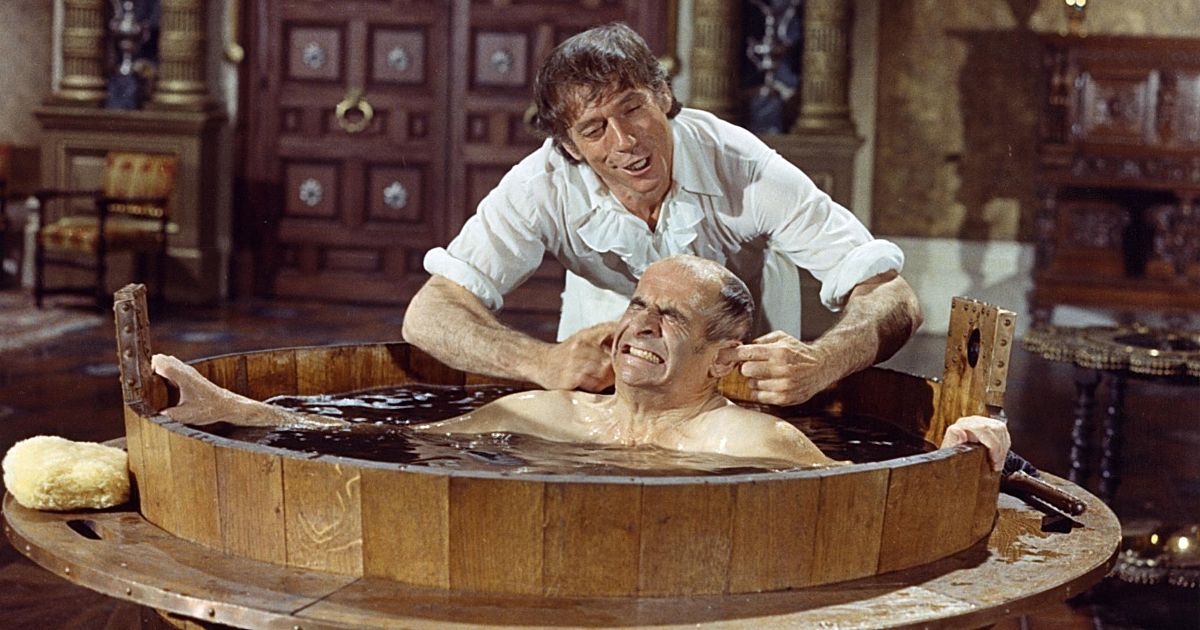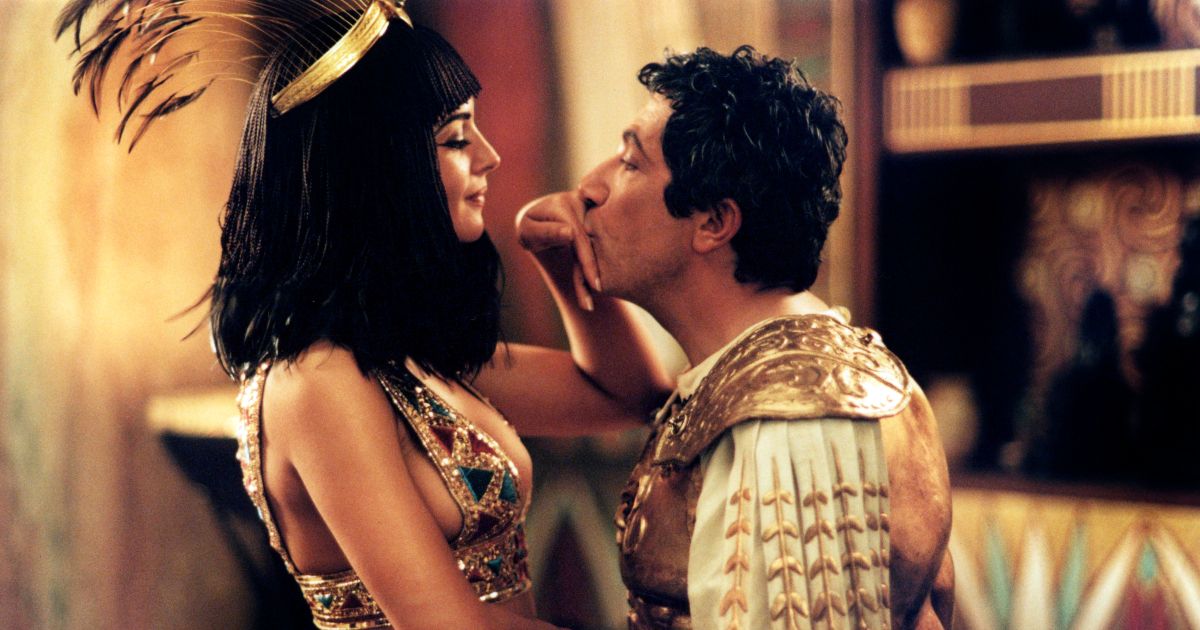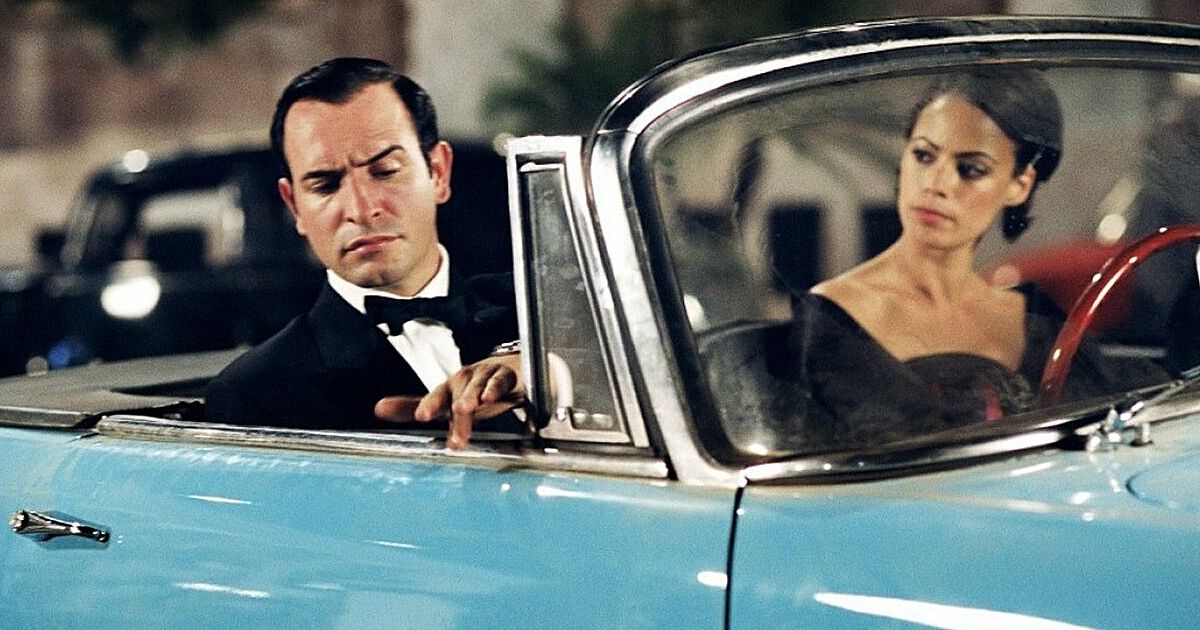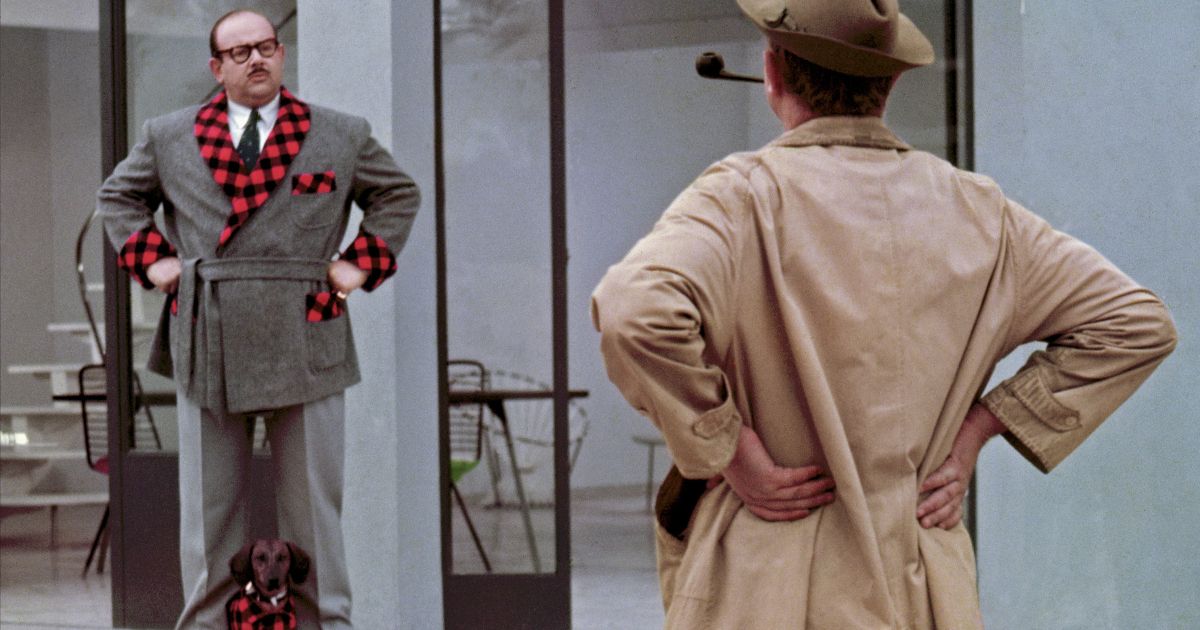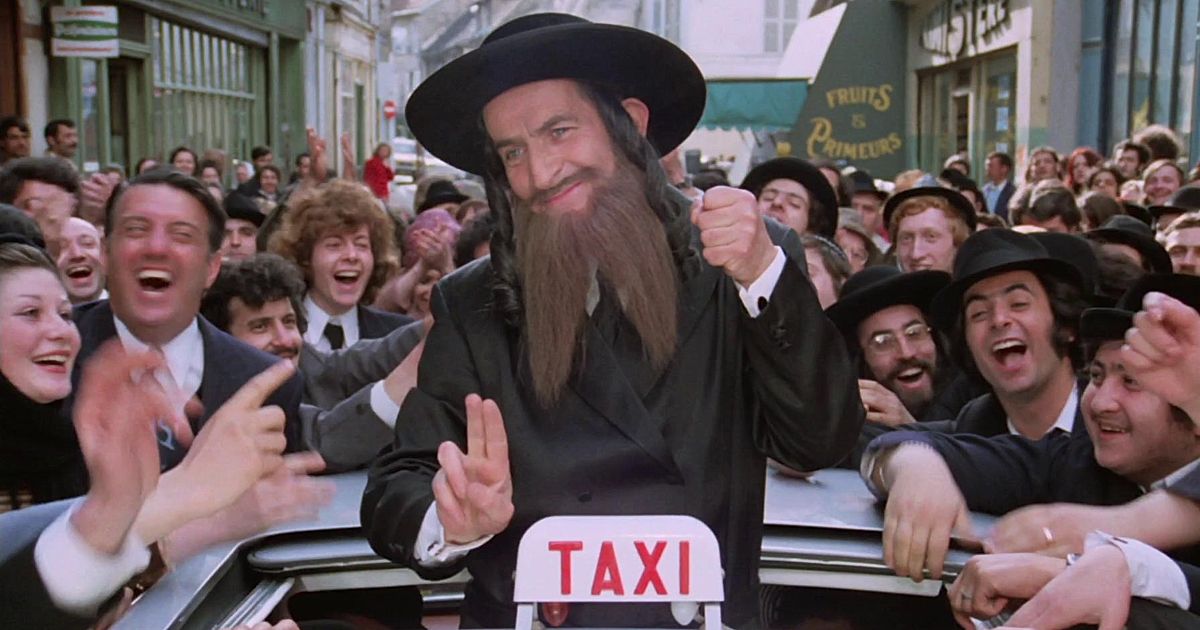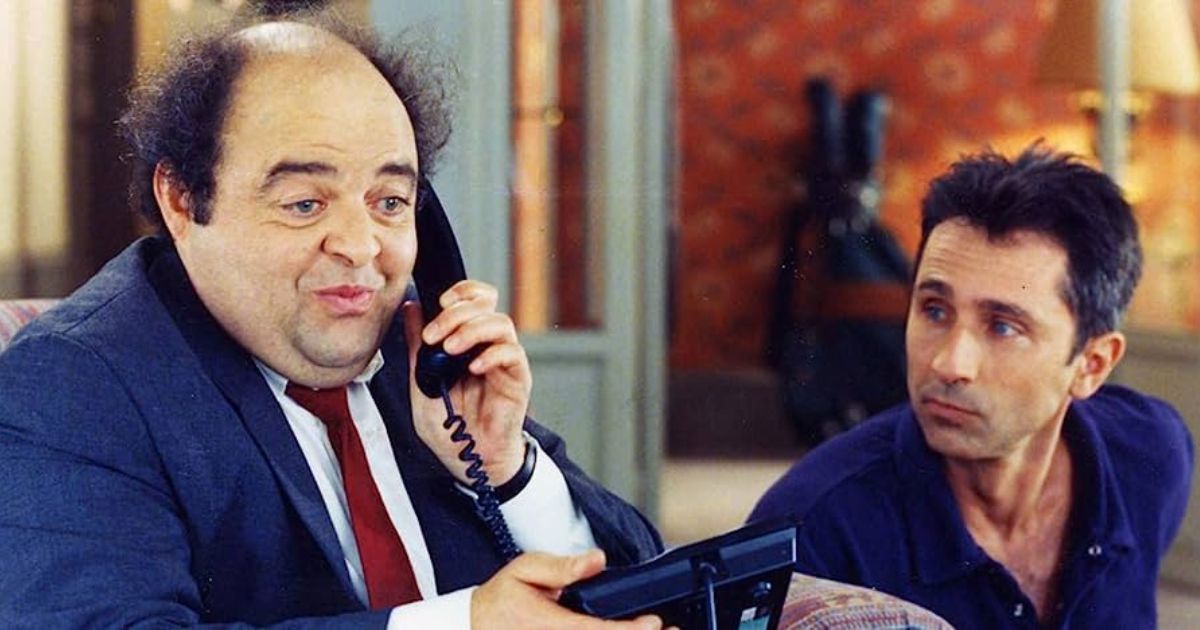Some film genres are more popular than others in certain countries. Per the New York Film Academy, action movies prevail in Brazil and Australia, while fantasy is number 1 in Japan, and adventure is favored in Germany and India. As for France, the site states that comedy is the most preferred type of movies, and a quick Google search will confirm that it’s also the country’s most successful export. Overall, the French love going to movie theaters, and Paris is known for having the highest density of cinemas in the world, offering a wide selection of both mainstream and arthouse and both local and foreign titles all year along. And in the center of it all, comedy has always prevailed, whether slapstick, subtle, or with a solid dose of sarcastic jeux de mots.
Americans have Mel Brooks, the Farrelly Brothers, Robin Williams, Eddie Murphy, Chris Rock, and Jerry Seinfeld; the British have Charlie Chaplin, Benny Hill, Rowan Atkinson, and the Monty Python troupe; as for the French, they are very proud of comedy household names such as Louis de Funès, André Bourvil, Jacques Tati, Pierre Richard, Isabelle Huppert, Alain Chabat, Audrey Fleurot, and Alexandre Astier.
Here are 16 essential comedies from various decades that constitute a solid introduction to French culture, humor, and the most beloved stars in the genre.
16 Les Quatre Charlots Mousquetaires / The Four Charlots Musketeers (1974)
There are many series and films inspired by Alexandre Dumas’ famous historical adventure novel The Three Musketeers, set in 17th-century France, and André Hunebelle’s The Four Charlots Musketeers stars comedians and musicians The Four Charlots, who were huge in francophone countries in the 1970s and were known as The Crazy Boys in English-speaking circles. In this classic slapstick comedy and parody, the useless and drunk musketeers’ and their clumsy valets (Gérard Rinaldi, Gérard Filippelli, Jean Sarrus, and Jean-Guy Fechner) must stop the Richelieu Cardinal (Bernard Haller) from overthrowing King Louis XIII (Daniel Ceccaldi).
15 Taxi (1998)
Written by Luc Besson and directed by Gérard Pirès, the action-comedy Taxi stars Samy Naceri as Daniel Morales, a highly skilled and brazen taxi driver who has installed secret modifications on his plain-looking car; Marion Cotillard as his girlfriend Lilly; and Frédéric Diefenthal as Police Inspector Émilien Coutant-Kerbalec, who is chasing a German gang and enlists Morales to find the criminals’ getaway cars.
The film has spawned four sequels and was remade in the US in 2004 with Queen Latifah and Jimmy Fallon, albeit much less successfully. Per reviewers on IMDB, “The characters in themselves are severely less intricate than in Besson’s original, and maybe the best of them all is gone. I am talking about the utterly insane police captain. Then again, of course the Americans would leave him out, since he’s a parody of every single angry police chief in American movies,” and “While the core of the film is still oriented around fast cars, hot chicks, and zany humor, the film’s light-hearted French comedic ambiance has been replaced with a dirtier, more strident, and somewhat more serious American action-comedy feel, which, although it tries hard, doesn’t quite translate as it should.”
14 Astérix & Obélix: Mission Cléopâtre / Asterix & Obelix Meet Cleopatra (2002)
Written and directed by the Algerian-French comedian and filmmaker Alain Chabat and adapted from the iconic comic book series Astérix by René Goscinny and Albert Uderzo, Asterix & Obelix Meet Cleopatra stars Christian Clavier, Gérard Depardieu, Jamel Debbouze, Monica Bellucci, Claude Rich, Gérard Darmon, Édouard Baer, Dieudonné, and Chabat himself. After Queen Cleopatra defies Julius Caesar and swears she will build a palace in Alexandria that is larger than the one he has in Rome in less than three months, her architect must solicit supernatural help from the only village in Gaul who has resisted Roman occupation.
Fun fact: There is hieroglyphic writing in the film that translates into, “If you can read this, you are an Egyptologist.”
13 OSS 117: Le Caire, Nid D’espions / OSS 117: Cairo, Nest of Spies (2006)
A parody of the novel series by Jean Bruce and the spy film genre as a whole, OSS 117: Cairo, Nest of Spies is co-written and directed by Michel Hazanavicius. It stars Jean Dujardin as the secret agent Hubert Bonisseur de La Bath / Office of Strategic Services agent 117, Bérénice Bejo as Larmina el-Akmar Betouche, Richard Sammel as Gerhard Moeller, Philippe Lefebvre as Agent Jack Jefferson, and Aure Atika as the Egyptian Princess Al-Tarouk. Set in 1955, the plot follows OSS 117 on his mission to Cairo to investigate the disappearances of his colleague, Agent Jefferson, and a Soviet cargo ship.
12 Qu’est-ce qu’on a fait au Bon Dieu? / Serial Bad Weddings (2014)
Directed by Philippe de Chauveron, Serial Bad Weddings is the first of three installments. It features Christian Clavier and Chantal Lauby as ultra-conservative and wealthy Catholic parents whose daughters bring home a Shephardi Jew businessman, a Catholic West African actor, an Algerian Muslim lawyer, and a Han Chinese banker. The quick-paced dialogue mirrors various stereotypes and controversial topics in French society. Branded racist and phony in other countries, the film was a huge hit in France.
11 Les Visiteurs / The Visitors (1993)
Directed by Jean-Marie Poiré and starring Christian Clavier, Jean Reno, and Valérie Lemercier, the time-travel adventure comedy The Visitors was the highest-grossing film in France in 1993. The story centers on a knight and his squire who are sent by a wizard from the 12th century into modern-day France. The film was followed by two hit sequels and an unsuccessful American remake, Just Visiting.
10 Le Prénom / What’s in a Name? (2012)
Written and directed by Alexandre de La Patellière and Matthieu Delaporte and adapted from their play of the name, What’s in a Name? stars famous singer-actor Patrick Bruel, Charles Berling, Valérie Benguigui, and Guillaume de Tonquédec. The last two won Best Supporting Actress and Actor at the 38th Annual César Awards, and the movie earned the Grand Prix Hydro-Québec at the Abitibi-Témiscamingue International Film Festival and the Radio Canada Audience Award at the Cinéfranco International Francophone Film Festival in Toronto. The plot centers on a tense and secret-revealing dinner involving Vincent, a successful businessman and father-to-be; Anna, his wife; Elisabeth, his sister and a high-school teacher; Pierre, a university professor and the latter’s husband; and Claude, a childhood friend who plays the trombone for an orchestra.
9 Les Vacances de Monsieur Hulot / Monsieur Hulot’s Holiday (1953)
Helmed by Jacques Tati and featuring him as the loveable, tall, pipe-smoking titular lead, Monsieur Hulot’s Holiday is considered a French classic, albeit featuring very little dialogue and no major plot. Starring Valentine Camax as the English woman, Nathalie Pascaud as Martine, Lucien Frégis as the hotel owner, Micheline Rolla as the aunt, Raymond Carl as the waiter, and Claude Schillio as the photographer, it accompanies several quirky characters on a beach holiday and is filled with sun, sand, nostalgia, and amusing situations. Per Jonathan Rosenbaum, “By the end of the film, Hulot’s hilarious mishaps have affected everyone else’s holiday for better and for worse, and affected our own sense of vacationing as well. Mr. Hulot’s Holiday fares much better on video because its dimensions are more containable on the smaller screen. The first of Tati’s Hulot comedies, it represents the best possible introduction to the great director’s charm, as well as his art. And it is the definitive look at the lighter side of summer vacations.”
8 Mon Oncle / My Uncle (1958)
The gawky Monsieur Hulot returns in Tati’s most critically acclaimed movie, My Uncle, which earned the Academy Award for Best Foreign Language Film, a Special Prize at the 1958 Cannes Film Festival, and the New York Film Critics Circle Award for Best Foreign Language Film. A subtle jab at consumerism, superficial values, and dull symmetrical urban architecture, the plot centers on the free-spirited Hulot, his bored nine-year-old nephew, Gérard, and the latter’s opportunistic, rigid, and materialistic parents.
7 Les Aventures de Rabbi Jacob / The Mad Adventures of Rabbi Jacob (1973)
Nominated for a Golden Globes Award in the category of Best Foreign Film, The Mad Adventures of Rabbi Jacob is directed by Gérard Oury and stars the iconic comedian Louis de Funès opposite Suzy Delair and Claude Giraud. The story involves a lot of disguises, misunderstandings, and mistaken identities, and revolves around a kidnapped Arab revolutionist leader, a relentless police detective, and a racist, xenophobic, and temperamental businessman. Per French Films, “Today, the film comes across as unashamedly politically incorrect, and yet anyone who is offended by its superficial portrayal of Jews and Muslims is perhaps missing the point. Beneath the comic hijinks, there is a serious moral to this film, which is that communities of all races should work together to defeat a common enemy. In a sense, the film is strangely prophetic and offers a beacon of hope for a world that risks being fragmented by sectarian self-interest.”
6 Le Grand Blond avec une Chaussure Noire / The Tall Blond Man with One Black Shoe (1972)
Active since 1967, Pierre Richard is another beloved French comedian, and he is most famous for portraying sweet, awkward, and idealistic characters. He stars as François Perrin, an unsuspecting violinist who is selected by a counter-espionage ring leader to discredit his subordinate, in The Tall Blond Man with One Black Shoe, a spy comedy co-written and directed by Yves Robert. The stellar cast also includes Bernard Blier, Jean Rochefort, and Mireille Darc.
5 Bienvenue ches les Ch’tis / Welcome to the Sticks (2008)
Co-written and directed by stand-up comedian Dany Boon, Welcome to the Sticks was nominated for Best Writing at the César Awards and for the Audience Award for Best Film at the European Film Awards. The French word “Ch’ti” is slang for someone from Northern France, and the main character, Philippe (Kad Merad), is punished by his employers for pretending to be disabled by being transferred to a small, rainy, northern town. Much to his surprise, the initially prejudiced Philippe is soon won over by the locals, especially by Antoine (Boon), and grows fond of their cuisine, idioms, and traditions.
4 La Folie des Grandeurs / Delusions of Grandeur (1971)
An adaptation of the play Ruy Blas by Victor Hugo, Delusions of Grandeur is directed by Gérard Oury and stars Louis de Funès as Don Salluste de Bazan, Yves Montand as Blaze, Alice Sapritch as Dona Juana, Karin Schubert as the Queen, and Alberto de Mendoza as the King. Set in the 17th century during the Spanish Empire, it centers on Don Salluste, a greedy and dishonest Minister of Finance who is fired by the Queen for allegedly compromising a royal handmaid and getting her pregnant. Hellbent on revenge, Salluste sets a plan in motion to push the Queen to have an affair with his own valet.
3 Les Triplettes de Belleville / The Triplets of Belleville (2003)
Written and directed by Sylvain Chomet, The Triplets of Belleville, also known as Belleville Rendez-Vous, is an animated musical comedy with more pantomime than dialogue that won the César for Best Film Music and was nominated for two Academy Awards: Best Animated Feature and Best Original Song. Following the kidnapping of her grandson, Champion, by the French mafia, Madame Souza takes it upon herself to find and save him, accompanied by Bruno, Champion’s faithful hound, and music hall singers Rose, Violette, and Blanche, who happen to be triplets. Per Roger Ebert, “The Triplets of Belleville will have you walking out of the theater with a goofy damn grin on your face, wondering what just happened to you. Most animated features have an almost grotesque desire to be loved. This one doesn’t seem to care. It creates a world of selfishness, cruelty, corruption and futility – but it’s not serious about this world, and it doesn’t want to attack it or improve upon it. It simply wants to sweep us up in its dark comic vision.”
2 La Grande Vadrouille / The Great Stroll (1966)
The Great Stroll, also known as Don’t Look Now… We’re Being Shot At!, is a hilarious World War II classic beloved by both French and British audiences that is considered not just one of the best comedies, but also one of the best movies of all time. Written and directed by Gérard Oury, it stars iconic character actor and comedian Terry-Thomas as Sir Reginald, Claudio Brook as Peter Cunningham, and two giants of French comedy: Louis de Funès as the opera chief conductor Stanislas Lefort and André Bourvil as the house painter Augustin Bouvet. After a German air-force attack on a British bomber forces three soldiers to parachute into Nazi-occupied central Paris, Resistance supporters Stanislas and Augustin reluctantly join forces to help them cross over into the Free Zone, all the while evading Major Achbach (played by German theater and movie actor and director Benno Sterzenbach) and his men.
1 Le Dîner de Cons / The Dinner Game (1998)
Written and directed by Francis Veber, The Dinner Game was the most successful local production in France when it was released in 1998. It stars Jacques Villeret, Thierry Lhermitte, Daniel Prévost, and Alexandra Vandernoot, and centers on a terrible tradition among a group of Parisian friends: occasionally, one of them is to bring a quirky “idiot” to dinner, so they could all make fun of him right under his nose. This time, it is Pierre’s turn, and he has selected a shy employee at the Ministry of Finance whose hobby is making replicas of monuments with matchsticks. But karma gets in the way when Pierre injures his back and his wife, fed up with his antics, decides to leave him.
The movie was remade in 2010 as Dinner for Schmucks, with Steve Carell and Pau Rudd.
This story originally appeared on Movieweb

